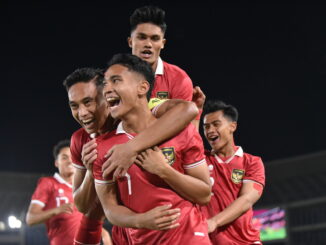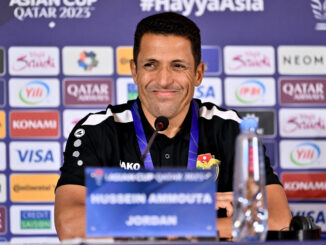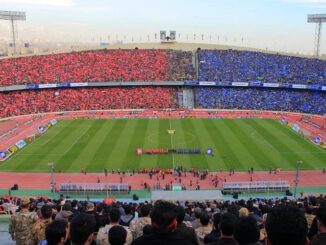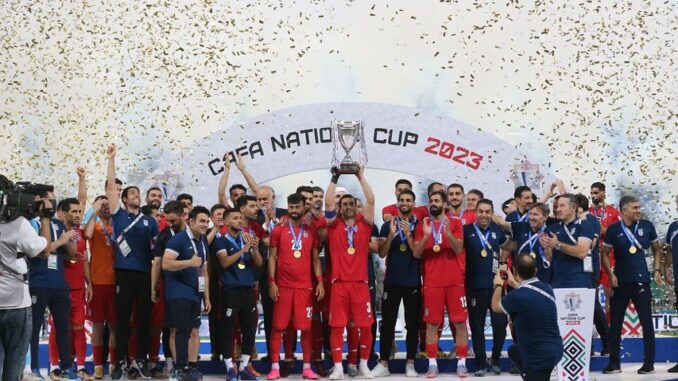
In its inaugural senior tournament, Iran triumphed over hosts Uzbekistan to lift the CAFA Nations Cup to become Central Asia’s very first champion in the federation’s brief eight-year history.
While the name on the trophy may in the end be a predictable one, the wider tournament promoted the blossoming present and tantalising future of the region’s football; ahead of a potentially redefining few years ahead on the run up to a pivotal World Cup cycle.
The tournament, one that had long been in the pipeline, finally materialised almost as a consequential offshoot of preliminary talks in neighbouring Russia as they attempted to join the AFC this summer. While those talks didn’t materialise, the by-product finally delivered a regional tournament to match up to their peers from across the continent.
There were some expected hiccups; unpredictable attendances, logistical and scheduling headaches, and even a team abandoning a game in protest at an officiating decision, but on the whole the tournament will be looked back upon fondly, most notably for the two trailblazers that cut through the pack to make the showpiece final.
Iran and Uzbekistan lead the Central Asian charge
In one of the two co-hosts, Uzbekistan arguably had the most ground to gain at the tournament. In the effortless way they progressed to the Final, all the while rotating heavily through the group stage, they went some way to demonstrate how far they’ve come in narrowing the gap to the elite ahead of them in Asia.
While others were significantly hampered by the pre-FIFA window start that precluded some of their more familiar international callups, Uzbekistan relished the opportunity to deploy a number of fresher and experimental selections that allude to a positive few years ahead for the nation.
While their focal point-turned-new national record goalscorer Eldor Shomurodov was the pivotal figure once more, it was those around him that generated the greater column inches.
The depth in Uzbek football has never been better stocked with the likes of Jasurbek Yakhshiboev, Oston Urunov, Khojimat Erkinov, Jamshid Iskandarov, alongside new Uzbek darling Abbosbek Fayzullaev, all having successful cameos in support of their leading man, the attacking threat looks to catapult Uzbek football into a potentially fruitful generation of forward thinking talent.
If anything, while the question seems to be a case of when, rather than if at this stage, the concern that whether this young generation will come through quick enough in time for January’s Asian Cup or even World Cup qualification, may in the end be the only factor to dampen rising expectations.
While Uzbekistan were rampant at times over the last fortnight, the direction of travel tended to be focused through the usual avenues, be it Shomurodov or his compatriot Jaloliddin Masharipov. If either struggles for fitness or form over the coming year, it risks Srecko Katanec’s gameplan being easily nullified, even if it’s due only to inexperience of those peripheral figures around them.
All the while, their run to the final was exceedingly comfortable. A 3-0 opener against the once fancied Oman rubber stamped their progress to date. This was followed up with 2-0 and 5-1 victories against rivals Turkmenistan and Tajikistan, which it must be said played out regrettably in front of attendances of less than 15,000 in Tashkent.
The final, however, was a different story; a full house was in attendance to host not only the region’s biggest name, but one of Asia’s elite nations in the form of Amir Ghalenoei’s Iran. Uzbekistan’s potential long-term frailties, and eternal bridesmaid tag re-emerged, as they wasted crucial opportunities and lost concentration in key moments, only to be struck by a thoroughly professional and ruthless Iranian side, who took the debut Central Asian title in quietly dominant fashion.
Ghalenoei clinches silverware within his first six months
Ahead of the tournament, there was a distinct, ‘-stan’ feel over the build-up, in which Iran entered as the better off (in footballing terms anyway…) cousins of the region, who’d paid their neighbours a return visit having gained notable global success, namely regular World Cup qualification.
The technical mismatch many worried about ahead of the Nations Cup, not least shared by the aforementioned Russia earlier this year, became all too evident early on. Back-to-back thrashings over a heavily weakened Afghanistan, and hosts Kyrgyzstan, amplified the gulf in progress made at different ends of the region’s football.
By the final, Mehdi Taremi had secured successive hattricks, while Sardar Azmoun, seemingly back to his best despite his ongoing troubles in club football, was similarly proficient in front of goal, netting the only goal of the game, and his fourth of the tournament in the decider.
As with Uzbekistan though, you may have come for the star attacking double act, who admittedly delivered some and more, but you left thinking about the next generation.
While some Team Melli fans questioned their defensive credibility, in what was the first real test for a post-Queiroz Iran, the takeaways all came in attacking areas.
Mohammed Mohebi looked a constant and effective threat from out wide, while Reza Asadi also impressed as the perfect foil and alternative option to the Taremi-Azmoun front pairing. The concerns following Qatar 2022 that Iran wouldn’t be able to evolve in the moment ahead of the Asian Cup, are seemingly being answered.
Throughout their time at the tournament, Iran eased past their opponents and at times, quite understandably took their foot off the pedal. While fans may look for a critical side to their occasional third gear approach, a debut regional title and a first piece of silverware in decades shouldn’t be sniffed at.
Mixed fortunes for the chasing pack
The other co-host, Kyrgyzstan, certainly made more noise in the closer confines of the Dolen Omurzakov Stadium in Bishkek. A key contributor to the success of the region over the last decade, this was Kyrgyz football’s moment to not only host, but to demonstrate their progress in the regional spotlight.
It also came at a crucial transition point; moving away from their outgoing legendary coach Aleksandr Krestinin, who even gave a rousing speech on opening night, to welcome their new incumbent, and waistcoat aficionado, Stefan Tarkovic.
Tarkovic’s remit is to rekindle the magic that had ebbed away during the last six months of Krestinin’s reign ahead of their return to the Asian Cup in six months’ time.
The introduction of newly nationalised striker Joel Kojo, and Russian based keeper Anton Kochenkov certainly plotted some interest moving forward, while the recall of Anton Zemlyanukhin for his first national team appearance in four years was another pleasing ace to deploy from the bench.
The eventual matches weren’t all rosy, however. In struggling to edge past Afghanistan in the tournament opener, followed by a second half mauling by Iran, Kyrgyzstan showed promise in areas, but ultimately categorised their slow progress, as such.
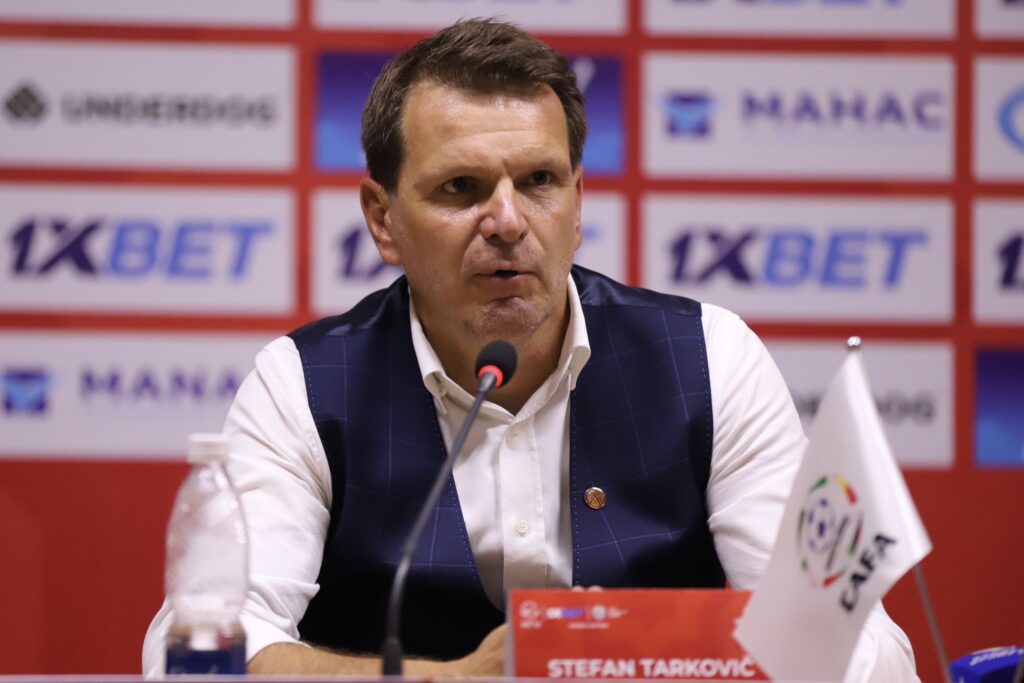
Their third-placed playoff defeat to the nominal guests of the region, Oman, bizarrely hosted across town from the final in a near empty Pakhtakor Stadium, was admirable in effort, but ultimately showed up the work required at both ends of the pitch for Tarkovic’s men moving forward.
Branko Ivankovic’s side will similarly look back on the tournament with mixed feelings. Third place in a guest spot, to go with the runners up medal in Iraq at the Gulf Cup at the beginning of the year, on paper shows how effective this team can be, yet they really weren’t at the races with any sort of consistency.
A humbling at the hands of Uzbekistan, a side they’ll undoubtedly be pitting themselves against for one of the expanded World Cup places ahead of 2026, will have raised concerns, while their lack of dominance, even against weaker opposition in Tajikistan and Turkmenistan, albeit a trade-off of Ivankovic’s style, led to a fortunate passage to the knockout phase, with plenty to ponder.
There were familiar struggles also for Tajikistan. Entering on an air of positivity under enigmatic coach Petar Šegrt, the team lacked harmony and flexibility; having only made two changes to the starting line-up over three matches, they all too often looked out of ideas in attack, relying on old sage Manuchekhr Dzhalilov to conjure something off mere scraps.
Neighbours Turkmenistan fell a further step behind, with more reconstruction needed. Mergen Orazov’s struggles at home were indeed translated to the international stage as predicted. Turkmen football is developing a higher level of technical players of late at different age groups, however the formation of the strategy hasn’t seemed to keep pace.
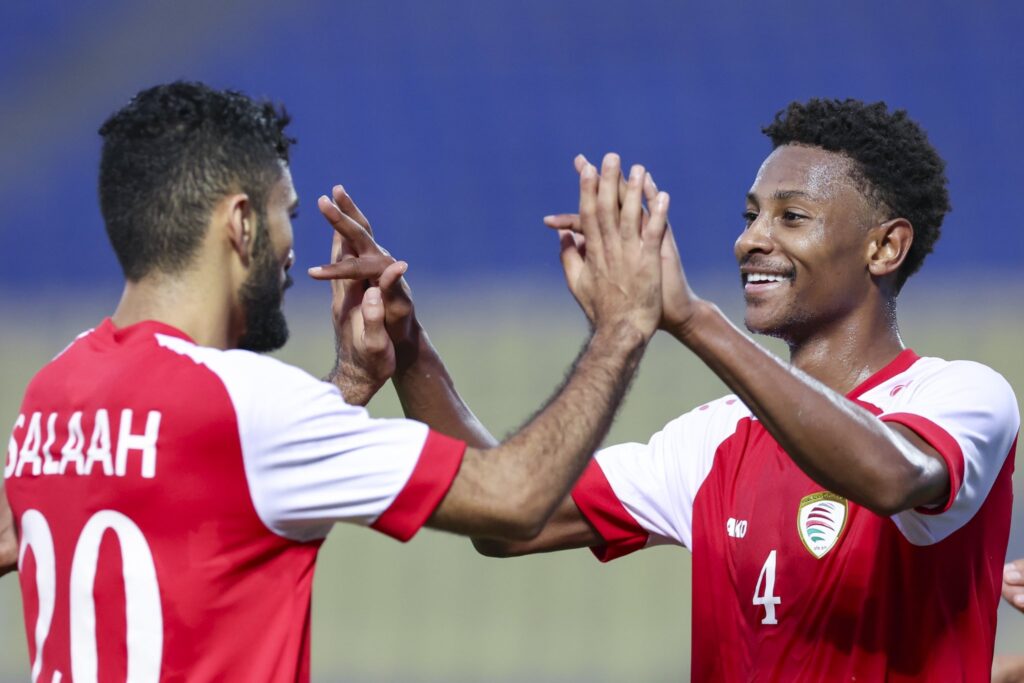
These below par exits, however, couldn’t compete with the scale of Afghanistan’s horror show, a fortnight that had started so promisingly.
Despite selecting a broadly second-string squad in Kyrgyzstan, they offered a sterling rear-guard action that contained their hosts until the 97th minute. However, following Ernist Batyrkanov’s winner, chaos ensued, with Afghanistan coach Abdullah Al-Mutairi hauling the players off in protest at a debatable hand ball call that preceded the late effort, thus forfeiting the tie.
While CAFA pushed on in retaining Afghanistan in the tournament, out of persistence to see an actual group stage take place more than anything, having lost out in securing a second invitee spot ahead of the tournament, a 6-1 defeat to Iran, in front of a mere handful of attendees, may have led some to ponder whether it was, in the end, worth the bother.
As a whirlwind, sometimes shambolic, occasionally brilliant, always distinct debut CAFA Nations Cup draws to a close, the here and now of Central Asian football is laid bare for all to poke and prod.
Moving forward though, with Iran and Uzbekistan continuing to push the elite in Asia, this promises only to be the beginning for this region’s success.
Photo: IG/teammellifootball
Listen to the latest episode of The Asian Game Podcast


